Why does one person develop cancer and another does not?
For some people, it’s sheer bad luck, caused by genes they’ve inherited, for example, or random chance mutations in the body’s renewal processes – not an unlikely scenario, given that some 330 billion cells are repaired and replaced on a daily basis.
But increasingly, scientists believe that the way we live – what we eat and drink, our exercise levels, whether we smoke or if we are exposed to environmental pollutants – plays a major role.
Last year, a US study that looked at lifestyle habits of two million people over 20 years concluded that around 45 per cent of cancers might be caused by lifestyle and were entirely preventable.
‘We now know that cancer starts developing a long time before symptoms show or signs can be detected on blood tests, for example,’ says Sarah Blagden, a professor of medical oncology at the University of Oxford.
‘For bowel cancer, it’s 20 to 30 years beforehand – and, for many others, including pancreatic and lung cancers, it can be decades,’ she adds.
‘Regardless of the type of cancer, the process by which the disease develops – from the first genetic mutation in a cell into a tumour – is a long one and is not necessarily a linear progression,’ adds Professor Marc Gunter, chair of cancer epidemiology and prevention at Imperial College London.

Scientists believe that the way we live – what we eat and drink, our exercise levels, whether we smoke or if we are exposed to pollutants – plays a major role in developing cancer
Around five to ten per cent of cancers are the result of inherited faulty genes, but ‘around 95 per cent of cancers are caused by mutations acquired during a lifetime – and many factors can play a part’, he adds.
‘Even if someone has inherited a gene that predisposes them to a certain cancer, it is by no means inevitable they will develop it.
‘And it’s never too late to adopt healthier lifestyle habits that can help prevent cancer developing – you can increase or reduce your luck by your lifestyle,’ he says.
Professor Blagden concurs: ‘Daily positive lifestyle habits can add up over the years to dramatically reduce your risk of developing cancer.’
This includes tackling obesity, a risk factor for up to 18 cancers, according 2023 research by the World Cancer Research Fund.
We spoke to leading cancer experts to bring you this exclusive series, based on the latest research, packed full of practical ways that you could help to cut your risk and prevent getting cancer – including what they do to protect themselves against the disease.
What to eat – and avoid
The foods we choose can have a profound effect, long-term, on whether we develop cancer.
Eat more…
CRUCIFEROUS VEGETABLES: Vegetables such as broccoli, cauliflower, kale, cabbage, asparagus and bok choy, contain high levels of phytochemicals (protective compounds in plants) that help prevent dietary toxins such as nitrates (found in processed meat) turning into carcinogens that damage DNA in cells and promote inflammation, both triggers for cancer.
Also, cruciferous vegetables provide sulforaphane, a compound that enhances enzymes in the liver that break down any carcinogens absorbed via the gut, explains Robert Thomas, a consultant oncologist and a professor of sport and nutritional science at the University of Bedfordshire.
Eating around five servings of these veggies a week can reduce the risk of lung, colon and pancreatic cancers, according to a review of 226 studies published last year in Nutrition Reviews.
NUTS: As well as phytochemicals, nuts have other anti-cancer properties, ranging from improving gut health to enhancing antioxidant enzymes and supporting the repair of DNA.
Studies have linked regularly eating walnuts, for instance, with a reduced breast cancer risk and lower risk of bowel cancer relapse.
ONIONS, GARLIC AND LEEKS: These foods are particularly rich in a potent plant compound, quercetin, which has anti-cancer properties – regular consumption cuts the risk of lung, oesophageal and pancreatic cancers.
It’s best to eat them cooked, says dietitian and cancer care specialist Jane Clarke, as heat softens the cell walls, releasing greater quantities of the beneficial compounds.
BERRIES: Fresh or frozen berries directly boost levels of melatonin, important for our body’s sleep-wake cycle – regular consumption can enhance sleep, vital for DNA repair in our cells, explains Professor Thomas.
They’re also rich in protective phytochemicals and anthocyanins (plant pigments with anti-inflammatory properties, which studies show may help protect against cancer).
Professor Thomas suggests eating a handful four or five times a week.
OLIVE OIL: Not only are olives a rich source of potent plant compounds called lignans, which studies have shown can inhibit the HER2 gene linked to aggressive breast cancers, but extra-virgin olive oil specifically contains high levels of omega 9, a monounsaturated fat that helps reduce chronic inflammation, also linked to cancer, says Professor Thomas.
At least half a tablespoon of olive oil a day could cut your chances of dying from cancer by 17 per cent, according to a 2022 study by the Harvard TH Chan School of Public Health.
CARROTS: These are rich in beta-carotene as well as vitamins A and K, which several studies have linked with a reduced risk of various cancers.
For instance, research in the journal Nutrients in 2023 found that people who ate more than 32g a day (around half of a medium-sized carrot) were 17 per cent less likely to develop colorectal cancer.
CITRUS FRUIT: High in vitamin C and rich in bioflavonoids (a type of plant compound that protects cells), citrus fruit have been shown to keep cancers including pancreatic, prostate and stomach at bay. A review in the journal Gastric Cancer in 2008 found that three servings a week reduced the risk of stomach cancer by 28 per cent.
PULSES AND WHOLEGRAINS: These are rich sources of lignans and other compounds called isoflavones – linked to a lower risk of hormone-sensitive cancers such as breast and ovarian, says Professor Thomas.
They also contain phytoestrogens, which partially block oestrogen receptors, protecting tissues from toxins that mimic the effects of oestrogen, such as plastics and car fumes. Populations who eat more of them have a lower risk of these cancers.
The high levels of fibre they contain are also cancer-protective: one study found that every 10g increase in dietary fibre from wholegrains is linked with a 7 per cent reduction in the risk of developing colorectal cancer.
…And cut back on
PROCESSED AND RED MEAT: Meat such as sausages, bacon and salami, have been shown to increase risk of bowel and stomach cancer.
It’s thought to be due to the nitrates and nitrites they contain, which turn into N-nitroso chemicals (NOCs) that damage the cells lining the bowel.
Eating one sausage or three rashers of bacon a day (50g of processed meat) can increase your risk of colorectal cancer by 18 per cent, according to the World Health Organisation (WHO).
And 100g a day of red meat – such as beef, lamb or pork – could increase your risk of colorectal cancer by 17 per cent, according to the WHO. This is because when an iron-containing compound in red meat – haem – is broken down in the gut, it forms NOCs.
Crucially, too, meat fat contains dioxins, environmental chemicals that can damage the immune system, interfere with hormones, and potentially cause cancer.
ULTRA-PROCESSED FOODS: These foods are increasingly linked to several types of cancer – it’s thought this may be partly because ultra-processed foods (UPFs), which make up around 60 per cent of a UK adult’s diet, can contribute to obesity, a major cancer risk. One 2023 study from Imperial College London and researchers in Brazil found a 10 per cent increase in UPF intake was linked to a 19 per cent increase in the risk of ovarian cancer.
REFINED SUGAR: Research has linked diets high in refined sugar with an increased risk of breast, endometrial and colon cancers.
A 2014 study found that women who ate more than 61g of added sugar a day (15 tsps) were twice as likely to develop breast cancer as those who consumed half that, reported the Asia Pacific Journal of Cancer Prevention. A diet high in refined sugars can contribute to weight gain, insulin resistance (where the cells don’t respond properly to insulin – prompting further insulin to be produced) and chronic inflammation, all established cancer risks.
‘Processed sugar is potentially harmful as it plays havoc with gut health by promoting the growth of pro-inflammatory bacteria,’ says Professor Thomas. ‘A prominent driver of cancer, inflammation forces the cells to divide too fast so they develop spontaneous mutations and have less time to repair themselves.’
What the cancer doctors do to try to keep themselves free of cancer
Their expertise helps patients beat cancer but what do top doctors do themselves to help prevent the disease? Eight experts share their own simple research-backed habits…
Dr Richard Lee
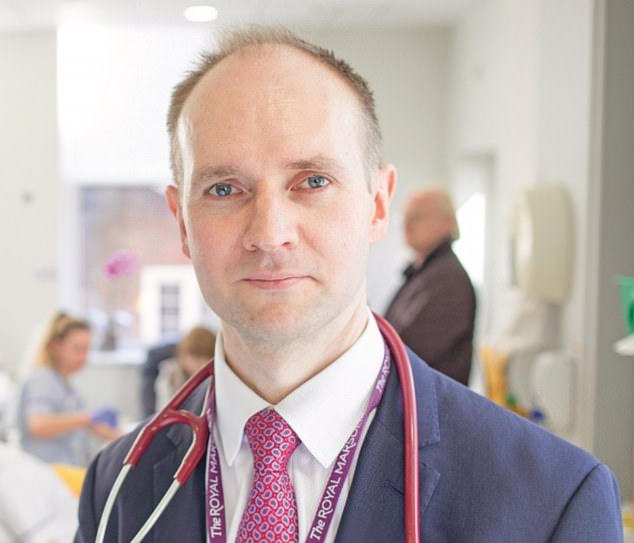
Dr Richard Lee, a respiratory consultant at The Royal Marsden Hospital in London
A respiratory consultant with an interest in cancer at The Royal Marsden Hospital, in London, says:
‘When we moved house, five years ago, we used the wood-burning stove most weekends – the light and heat it gave out were very cosy.
‘But as a respiratory doctor and researcher, I was also reading the growing body of research on how air pollution – including particles from wood-burning stoves – is linked to lung cancer and other chronic health conditions.
‘So I never now light the wood-burner.’
Professor Robert Thomas

Professor Robert Thomas, a consultant oncologist at Bedford and Addenbrooke’s Hospitals
A consultant oncologist at Bedford and Addenbrooke’s Hospitals, says:
‘I eat kimchi every day, as it’s packed full of probiotic bacteria, fibre and minerals which are all excellent for supporting good gut health and, in turn, the immune system, and reducing inflammation [both key to cancer prevention].
My research centres on the importance of diet in helping to prevent disease – and I consider kimchi a wonder food.
‘However, it’s very important that it’s fermented – some brands are not – and that it doesn’t contain the sweetener sorbitol [this can disrupt the gut microbes].’
Professor Marc Gunter
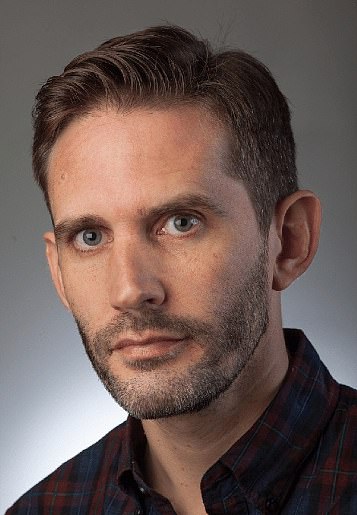
Professor Marc Gunter, chair in cancer epidemiology and prevention at Imperial College London
Chair in cancer epidemiology and prevention at Imperial College London, says:
‘I pay a lot of attention to eating the right foods for gut health and make sure I eat enough fibre, shown to lower the risk of bowel cancer.
‘Fibre contributes to a healthy gut microbiome, too, which may influence our immune system and lower inflammation.
‘I also have porridge every morning – oats are high in fibre and reduce insulin resistance, a condition which leads to more insulin. Insulin instructs cells to divide and replicate, a process that can eventually lead to mistakes and mutations [and cancer].’
Professor Sarah Blagden

Professor Sarah Blagden, a consultant oncologist at Oxford University Hospitals Trust
A consultant oncologist at Oxford University Hospitals Trust, says:
‘Aspirin prevents some cancers from starting, although we still don’t know exactly how it works.
‘I began taking aspirin at a dose of 75mg a day when I hit 50 (I’m now 55). I will stop when I’m 60, when the risk of side-effects – aspirin can cause stomach ulcers and increase risk of bleeding – will outweigh the benefits.’
Professor Angus Dalgleish

Professor Angus Dalgleish an emeritus professor of oncology at the University of London
An emeritus professor of oncology at the University of London, says:
‘After seeing its benefits for my patients (those prescribed high doses have lived longer), I began taking a daily supplement 20 years ago: vitamin D3 – which is better absorbed by the body than vitamin D2 – 50mcg a day in winter and 25mcg a day in summer.
‘I think the 10mcg dose recommended by the NHS os too low to have sufficientlyprotective effects.’
Dr Sophie McGrath
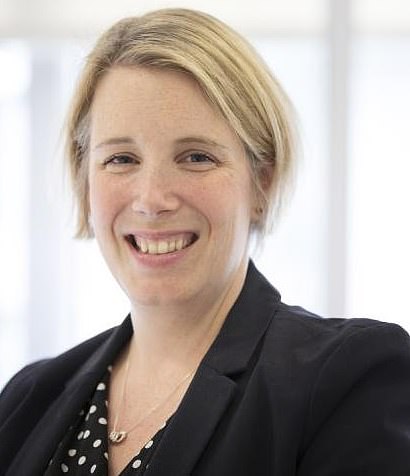
Dr Sophie McGrath, a consultant medical oncologist at The Royal Marsden Hospital
A consultant medical oncologist at The Royal Marsden Hospital, says:
‘Although drinking excessive amounts of alcohol is linked to cancer in general, there is evidence it also has a specific effect on your chances of breast cancer, partly because it increases the levels of oestrogen.
‘What’s more, alcohol is broken down into acetaldehyde – a toxic chemical that damages DNA; this takes place both in the liver and within the breast. This makes breast tissue particularly susceptible to acetaldehyde damage.
‘I don’t drink alcohol during the week, and only moderately at weekends. I also get up early to exercise to help reduce my own risk of cancer.’
Professor Chris Parker
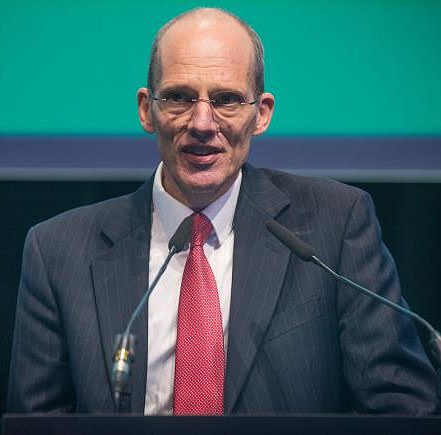
Professor Chris Parker, a consultant clinical oncologist at The Royal Marsden in London
A consultant clinical oncologist at The Royal Marsden in London, says:
‘Exercise is one of the most important ways to help prevent a number of diseases, including cancer. For the past ten years, I’ve been cycling to work each day. It is a round-trip of around 18 miles.
‘The benefits are backed by research, too – a UK study of 250,000 commuters found that cyclists had a 45 per cent lower rate of cancer compared to those who used a car or public transport.’
Dr Charles Archer
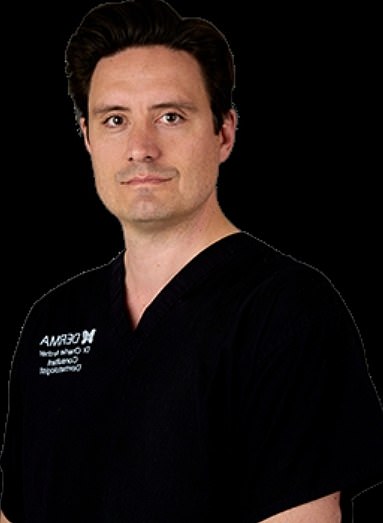
Dr Charles Archer, a consultant dermatologist and cancer lead at Oxford University Hospitals
A consultant dermatologist and cancer lead at Oxford University Hospitals, says:
‘As well as wearing daily SPF30, I regularly examine my moles and check them against photos taken during a skin check five years ago.
‘I also make sure I’m wearing UV-protective clothing – long sleeves, a hat, collar, trousers and sunglasses – in the summer months. A crude test is to hold the item up to the light: if you can see through the garment, it is not adequate protection.’
…and advice from a surgeon diagnosed with the disease
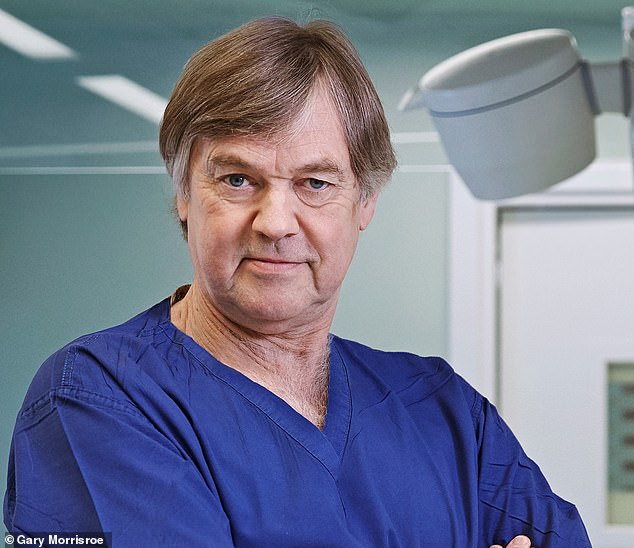
Professor Roger Kirby, 74, a consultant urologist
Professor Roger Kirby, 74, a consultant urologist who pioneered awareness and surgical treatment for prostate cancer, was diagnosed with the disease aged 62. He says:
‘My mind went blank when a colleague rang me to say that my biopsy had revealed a moderately aggressive prostate cancer. It was surreal and my life changed in an instant: I went from being a successful cancer surgeon with a busy and fulfilling career and a happy family life to being another cancer statistic.
My diagnosis came after a general check-up prompted by struggling to get to the top of a mountain on a charity bike ride. The fact I had struggled on the bike-ride turned out to be a Godsend, as I had no symptoms.
I knew immediately I wouldn’t be able to live with the uncertainty of wondering whether the tumour was progressing or not, so from the word go I decided
I would undergo surgery to remove my prostate. This stood in marked contrast to the advice I’d always given patients – to weigh up treatment options carefully and not rush into a decision.
My experience as a patient taught me several important things I hadn’t appreciated as an expert. One was how easily we surgeons underestimate how long it takes a patient to recover from treatment. I’ve told patients that the catheter they needed for ‘just a week or so’ after having their prostate removed was only a ‘little tube’. But I hadn’t appreciated how uncomfortable and embarrassing this would be in reality.
A more profound change was my sexual function although, at my age – and with a supportive wife – it didn’t affect me as much as it might a younger man. Eventually, I did recover sexual function, though it wasn’t quite the same.
After my experience, I made sure to talk through this element of surgery carefully with my patients, explaining the need for honest conversations and being well informed about the downsides before any form of surgery.
I now take more care with my diet – restricting red meat, alcohol and processed foods – as well as taking regular exercise.
The biggest change has been my mindset: my family and my relationships are more precious than ever. I devote much of my time to fundraising, in particular for charity Prostate Cancer UK. I’m lucky to have been given extra years to do this.’
Think twice about frying
The way you cook food can also play a role in your cancer risk.
Cooking meat – particularly processed meat – at high temperatures (i.e. frying, roasting and barbecuing at temperatures of 50C-300C) produces compounds called heterocyclic amines (HCAs) and polycyclic aromatic hydrocarbons (PAHs), linked to DNA mutations and an increased risk of colon, pancreatic and prostate cancers. (HCAs are produced by cooking any animal proteins, including fish, at high temperatures).
Smoke is a separate carcinogen and can affect any food that’s barbecued, fried or grilled.
Cooking starchy foods such as chips, or foods with added processed sugar
(e.g. breakfast cereals) that have been baked at high temperatures (120C or above for longer than three minutes) produces a toxic compound called acrylamide, linked to DNA damage and cancer risk.
Instead, you could try:
- ‘Steaming, poaching or braising – moist heat methods produce fewer HCAs or PAHs. Or cook a casserole, which requires longer cooking using lower temperatures,’ suggests oncologist Professor Robert Thomas. ‘And barbecues should only be considered an occasional treat.’
- Marinate meat with herbs – the cancer-protective properties of the herbs will help counter the effects of the cooked meat, suggests pharmacist Aidan Goggins, a specialist in diet and disease.
Take up offers for screening
The sooner cancer is detected, the better your chances of successfully treating it.
Although you should see your doctor if you have any symptoms such as unexplained weight loss, blood in urine or stools or lumps (see red flags box on the previous page), cancer experts agree that it’s vitally important to take up offers of free NHS screening – even if you have no symptoms.
‘People with cancer don’t necessarily present with symptoms straight away, which is one of the main reasons many don’t participate in NHS screenings,’ says Professor Marc Gunter, whose research at Imperial College London is focused on the effects of diet and lifestyle on cancer development.
The most recent NHS figures showed that a third of eligible women under 50 had not taken up the offer of cervical screening, for instance.
‘Yet staying up to date with screening can reduce your risk of cervical cancer by 70 to
90 per cent if you have it regularly from the time you are eligible, aged 25,’ says Sarah Blagden, a professor of medical oncology at Oxford University.
And research shows that participating in bowel cancer screening could reduce your chance of dying from the disease by 40 per cent.
The NHS offers the following free screening:
- Breast cancer: Mammography every three years for women aged 50 to 70.
- Bowel cancer: Stool sample test every two years for people aged 54 to 74 (it is now being rolled out for those aged 50 and above).
- Cervical cancer: Smear test every three years for women aged 25 to 49 and every five years for ages 50 to 64.
7 things to do now to cut your risk
Install blackout blinds
Light at night-time disrupts our body’s circadian rhythm, or sleep-wake cycle. This suppresses the production of melatonin (a hormone that promotes sleep, but which also has anti-cancer properties). Disrupting the body clock interferes with the repair of DNA, immune system function and may disrupt hormones – all key to cancer prevention.
‘You may not be aware of it, but light pollution from street lights and gadgets can interfere with your body clock in this way,’ says Dr Guy Leschziner, a consultant neurologist at Guy’s and St Thomas’ NHS Foundation Trust in London.
A study published in Environmental Health Perspectives in 2010 found that women exposed to the highest levels of night-time light pollution long-term were 30-50 per cent more likely to develop breast cancer.
‘Installing blackout blinds is a helpful way to get an uninterrupted night’s sleep,’ says Professor Leschziner. He also advises ensuring any electronic devices in the bedroom don’t interfere with rest.
Lose excess weight
Excess body fat is closely linked to numerous cancers – and the higher your BMI, the greater your cancer risk.
‘A BMI of 30 [‘obese’] doubles your risk of uterine cancer compared with someone who has a BMI of 25,’ says Sarah Blagden, a professor of medical oncology at the University of Oxford. This is because fat tissue – particularly visceral fat, which collects around the abdominal organs – produces toxic compounds that cause chronic inflammation.
Excess fat can also lead to extra oestrogen (linked to breast and uterine cancers) and insulin resistance – where the cells don’t respond properly to insulin, prompting more insulin production.
‘As well as instructing cells to store glucose, insulin prompts cells to divide and proliferate – this can sometimes lead to errors linked to several cancers, including kidney and colorectal,’ says Professor Marc Gunter, chair of cancer epidemiology and prevention at Imperial College London.
‘Being overweight can also lead to inflammation – it’s known that this can damage cells, leading to cancerous changes.’
Get moving
A sedentary lifestyle also fosters inflammation and lowers our immune system, affecting its ability to tackle cancerous cells: lack of exercise is strongly linked to cancer (see box, right).
Drink more milk
This could cut your risk of bowel cancer by nearly a fifth, according to new research by the University of Oxford, which found that women who consumed foods rich in calcium had a lower risk of the disease.
The effect – seen in those who consumed 300mg of calcium (the equivalent of a glass of milk) a day – may be due to calcium: it’s thought this binds to acids in the colon to reduce their carcinogenic effects.
Quit smoking
Tobacco smoke contains toxic chemicals that damage DNA in cells involved in breathing – causing more than a quarter of all cancer deaths, according to Cancer Research UK.
Indeed, ‘smoking is one of the biggest risks for developing cancer that you can control’, says Dr Richard Lee, a respiratory consultant at The Royal Marsden Hospital in London. ‘If you stop smoking today and stay stopped for five years, your risk of mouth, throat, gullet and bladder cancers reduces by 50 per cent.’
‘If you remain smoke-free for 15 years, your risk becomes similar to that of a non smoker,’ adds Professor Blagden.
Take an alcohol break
Alcohol is broken down into acetaldehyde, which is carcinogenic; it also impairs the body’s ability to absorb nutrients for DNA repair. It is linked to breast, liver and digestive tract cancers.
But research shows that giving up can significantly reduce your cancer risk.
A 2018 study at the Royal Free Hospital found that 90 per cent of volunteers who gave up alcohol for a month had a ‘rapid decrease’ in the amount of cancer-related growth factors in their blood
Use SPF (even in winter)
While you’re less likely to burn from UVB rays (the type that cause sunburn) in winter, your skin still needs protection from UVA (which causes skin cancer), which penetrate clouds and glass year-round, says consultant dermatologist Dr Charles Archer.
‘It’s estimated that 90 per cent of melanoma cases could be avoided with diligent sun protection,’ he says. Apply a 50p-sized dollop of sunscreen to your face and neck and reapply every two hours if you are outdoors.














